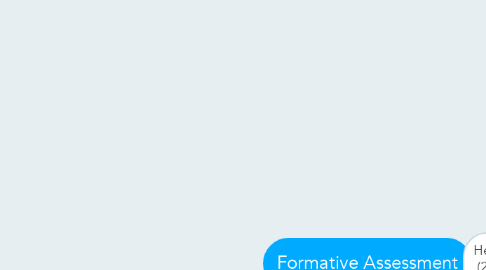Formative Assessment
by Pat Christiansen

1. Chappuis, S., & Chappuis, J. (2007). The best value of formative assessment. Educational Leadership, 65 (4), 14-19.
1.1. Is is through intentional assessment planning that determines if an assessment is summative or formative. ""how the results are used is what determines whether the assessment is formative or summative."
1.2. formative assessment guides the learning to take it to the next level. "formative assessment, on the other hand, delivers information during the instructional process....promote further learning....ongoing, dynamic process..."
2. Earl, L. (2003). Assessment of learning, for learning, and as learning. In Guskey, T. Editor & Marzano, R. Editor (Eds), Assessment as learning (21-28). Thousand Oaks, CA: Corwin Press, Inc.
2.1. Assessment is a complex process. Deciding when to use summative and formative practices to clearly define the intended learning of our students to the intended audience can be stressful and overwhelming. It is through our understanding of each that allows us to focus.
2.2. assessment as learning - summative assessment. "teachers use the tests to assess the quantity and accuracy of student work, and the bulk of teacher effort in assessment is taken up in marking and grading."
2.3. formative assessment takes the judging and comparing of students away. it focuses on the individual learning as well as group understanding. It allows us to adjust our teaching in the moment. "modify the learning work for their students....process to design the next steps in instruction.
3. Heitin, L. (2014). Teachers may need to deepen assessment practices for common core. Education Week Teacher. Retrieved from http://www.edweek.org/tm/articles/2014/03/05/ndia_formativeassessment.html
3.1. "formative assessment is the ongoing process of collecting data on what students know or don't know, and changing instruction accordingly."
3.2. allows teacher to provide interventions for students of need - differentiate instruction.
3.3. opportunities to share thinking is critical to common core standards. Taking those classroom opportunities to question and listen. "when listening closely to students...ask yourself...what is it likely that that student knows and doesn't know in this moment in time..."
3.4. students assessing one another


